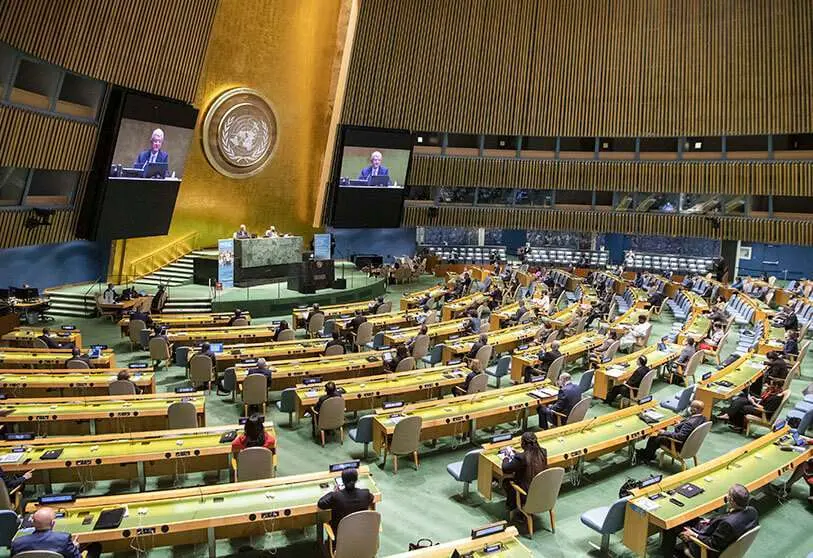75th anniversary of the UN

At the height of the global pandemic, many voices are being raised questioning the viability/utility of the United Nations. After 75 years of its existence, the UN has faced serious humanitarian crises, intervened in hundreds of peacekeeping missions and arbitrated in high, medium and low intensity international conflicts. However, there are many gaps in the effectiveness of its work and the high bureaucratic cost of its seconded personnel and actions.
The United Nations, which was indispensable in managing the Cold War, has been losing steam over the course of this century, being relegated to a mere centre for coordinating global policies, including those of peace, development, equality, education, environment, etc. During this time, it has been equipped with a superstructure, a staff with abusive salaries, a bureaucracy that makes it slow and chaotic, showing a level of efficiency that leaves much to be desired.
All the governments agree that if the UN did not exist it would have to be created; but, at the same time, they all agree that it needs to be transformed and adapted globally if it is really to meet the challenges as a multilateral organisation in the coming decades. An international organisation such as the United Nations cannot lag behind world events but can anticipate them, with a high degree of foresight that avoids improvising its intervention and the high cost it entails.
In addition, a qualitative leap should be made in its role of issuing guidelines, recommendations and direction, with a certain level of implementation of the necessary global policies. We are still far from having a "World Government", but it is essential to move in this direction in a globalised world. A World Government that issues global policies that mark the task of the different national governments and has the necessary means to evaluate their fulfilment in each corner of the planet. A more guiding and sanctioning power.
If the UN does not reset itself and face up to the necessary new challenges, world reality will change very slowly or almost not at all. The national governments (embedded in their practice of doing politics for the next elections and not for the next generations) are too comfortable with the current functioning of the United Nations, as they do and undo as they please, without taking on board in their entirety any of the charters that they themselves approved in different General Assemblies of the organisation.
It is necessary to re-found the UN from a social perspective, thinking and organising from the asymmetric human reality in which we live, which is more economic, more agile, more powerful and much less bureaucratic. Otherwise, the world's population will turn their backs on their inability to resolve, with the necessary foresight, the vicissitudes we face and we will continue to live on a planet where each outdated government will impose its own criteria and priorities. It is not a question of make-up or reform, it is a clean slate, a real transformation that will make us feel more human.
Francisco Pineda Zamorano. Expert in International Relations and Cooperation

